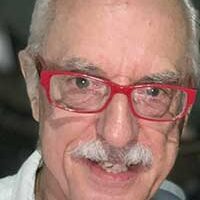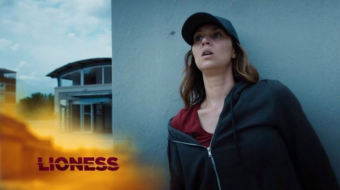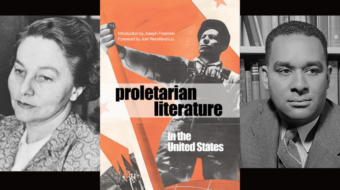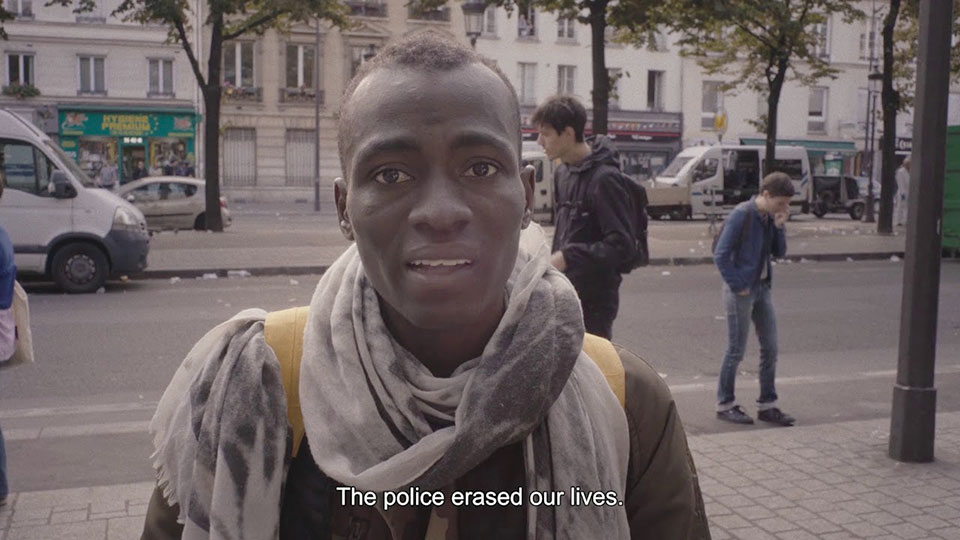
Celebrating its 10th year anniversary, the DOC NYC Film Festival has now become the largest documentary film festival in the U.S. It screens over 300 films, including many U.S. and world premieres, and runs for 10 days, Nov. 6-15.
There are many intriguing titles addressing social and political issues of interest to readers and filmgoers. A study of the award-winning Independent war correspondent Robert Fisk, This Is Not a Movie, which had its world premiere at the Toronto International Film Festival, follows him around during his daring investigative probes throughout the Middle East, Ireland, and wherever there’s a war.
The unending immigrant crises gripping the world, and specifically Europe, is studied in Paris Stalingrad, a district in Paris where refugees get dropped off to fend for themselves on the streets of an unwelcoming city, before they eventually get a chance to earn their “papers.”
A couple of docs addressing Islamophobia take place in New York. American Muslim, directed by Adam Zucker, follows Muslim Americans who are both proud of their country but also targets of Islamophobia.
Brooklyn Inshallah, directed by Ahmed Mansour, is about Palestinian-American Khader El-Yateem, a full-fledged practicing Lutheran pastor who hopes to be the first Arab American on the New York City Council. He helps his people deal with the changing climate of anti-Muslim sentiment in America, while also dealing with issues of political and ethnic identity.
At least two films at the Fest deal with the death and destruction caused by the Syrian War and its aftermath. Paradise Without People, directed by Francesca Trianni, deals with two pregnant Syrian refugees living among thousands of other refugees in Greece. They have to make desperate decisions, some with disastrous results. The richly funded For Sama is already an award-winning doc by Waad al-Kateab, who gave birth to her young daughter during the onslaught of the war, and endured grueling conditions in an underground hospital for five years. She marries a fellow physician, gives birth to Sama, and then has to decide between remaining in Syria to fight for her country’s freedom or leaving to protect her child against the threat of constant danger.
A beautifully produced study of the history of Burma/Myanmar and the main leaders who shaped the country’s destiny, On the Inside of a Military Dictatorship, provides an insider’s look into the military and social upheaval during the last 50 years. Interviews from most of the main players offer a clearer understanding of what the country has gone through, with its military coups and dealings with the Rohingya community.
A doc with one of the more provocative titles ends up being an advertisement for “saving the capitalist system.” The Great American Lie, directed by Jennifer Siebel Newsom, exposes the deep roots of systemic inequalities that have created the widening economic gap and results in the inability for most Americans to achieve the so-called “American Dream.” It shows how “masculine” traits like individualism, power and money are prioritized over “feminine” ones like collaboration, care and empathy. But the unrealistic hope of the film is for the “Dream” to return with employment and success for all. It’s a fantasy doc.
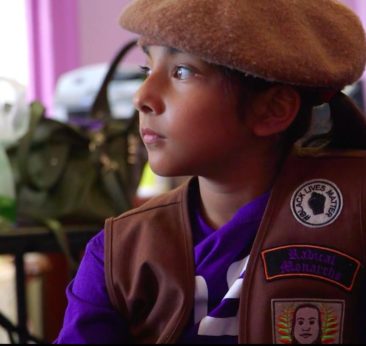
There are films that celebrate the roles of activists, including We Are the Radical Monarchs about an Oakland-based rock group formed by two young women of color who attempt to expand the organization while performing at rallies and marches. The highly active and successful Restaurant Opportunities Center (ROC) comes up against the NRA (National Restaurant Association) over the fight for one fair wage in a new doc called Waging Change. The Great Green Wall tells of the ambitious reforestation project spanning the entire African continent, and includes many powerful interviews with activists on the front line.
There’s a new intriguing doc about the origin of AIDS that premiered at the Toronto International Film Festival and now has its U.S. premiere at DOC NYC. (This happens often since the Festival’s Artistic Director Thom Powers is also the head of TIFF’s Documentary category.) Killing Patient Zero is about a Canadian man accused of spreading AIDS across North America. The Centers for Disease Control, in their drive to understand and control the disease, interviewed many men with the disease, finding patterns that suggested sexual transmission, and incorrectly scapegoated a French-Canadian flight attendant Gaëtan Dugas, designating him as “Patient Zero.”
One of the most stunning film projects in history is the 7 Up series created by UK director Michael Apted. He’s followed the lives of 14 people starting at the age of 7, making a documentary every 7 years charting their progress in life—with expected and unexpected results. 63 Up is the newest installment in this awesome venture, and for those who have followed these people from the beginning, it is a totally rewarding experience.
Great films that appeared at TIFF and were reviewed earlier in these pages include Cordillera of Dreams, Desert One, Advocate, Cold Case Hammarskjöld, American Factory, The Biggest Little Farm, and The Cave. The DOC NYC Fest is also an Academy-qualifying festival for short films, thus drawing the best of the best shorts. Whether or not you can attend the festival in person, most films will eventually be available for online streaming and may even make it to one of the dwindling number of film theaters in the country.
More information is available at www.docnyc.net.


